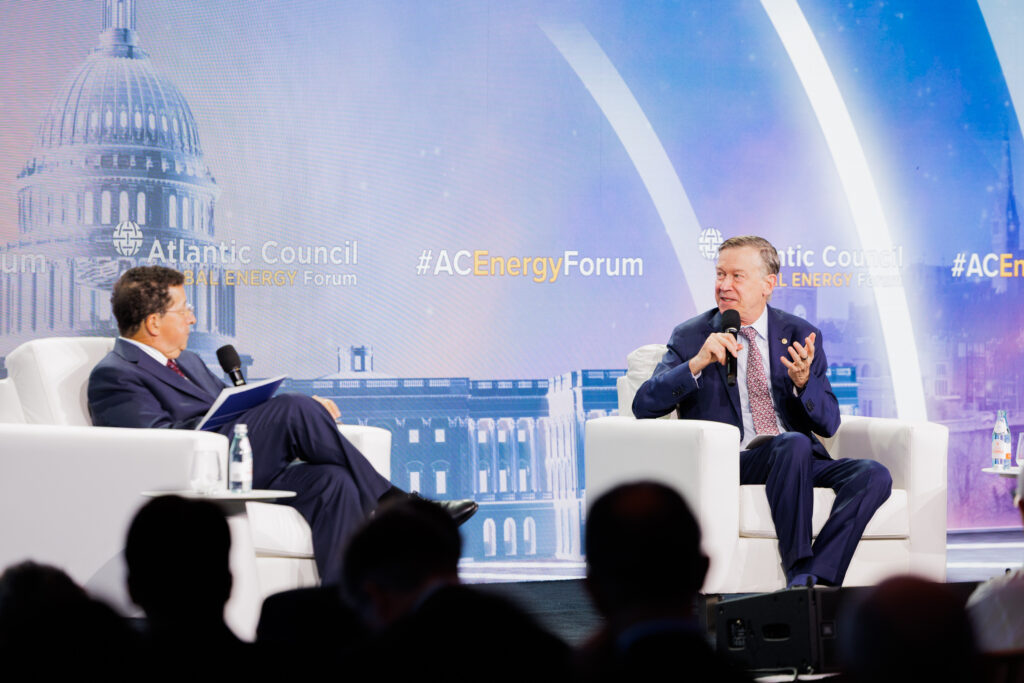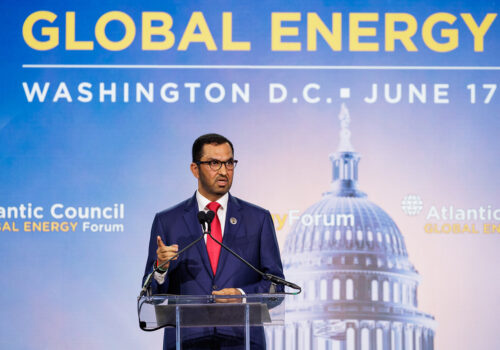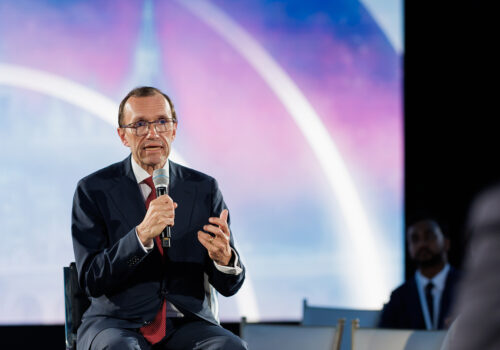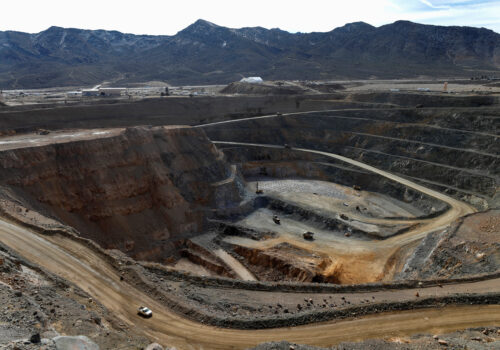Watch the full Global Energy Forum
“Our greatest rival is China, I would argue, and they now in many cases dominate the refining of critical minerals, in addition to the extraction,” said US Senator John Hickenlooper (D-CO) at the 2025 Global Energy Forum on Wednesday.
“We definitely in this country need to be able to demonstrate a certain capacity to deliver and refine critical minerals, but we cannot do it by ourselves,” said Hickenlooper, emphasizing the importance of partnering with US allies on energy security. “We have an alignment of countries that share certain values and have historically worked very well together despite differences.”
The discussion came amid debate in the US Senate on the One Big Beautiful Bill Act, which would phase out many clean energy tax credits and investment incentives.
Below are more highlights from this discussion, which was moderated by David L. Goldwyn, chairman of the Atlantic Council Global Energy Center’s Energy Advisory Group.
Big bill, big debate
- “As the one scientist in the Senate,” said Hickenlooper, a geologist by training, “I hold myself to account that we’ve got to do a better job of explaining” to his Republican colleagues “why there needs to be a sense of urgency around climate change.”
- Hickenlooper said he supports an “all-of-the-above” approach to US energy policy, including producing and exporting liquefied natural gas. “But at the same time, climate change is real,” he said, adding that “we’ve also got to be willing to push every source of energy we can that is cleaner.”
- “It’s not just wind and solar, it’s geothermal” and hydrogen power that would be negatively impacted by the One Big Beautiful Bill Act’s revocation of tax cuts and incentives, Hickenlooper said. “All these different sources of energy are going to get sliced to pieces,” he said, warning that this would cost jobs and fuel inflation.
- However negotiations in Congress end up, Hickenlooper said that the bill “looks almost certain to abandon many billions of dollars that are invested in wind, solar, [and] batteries.” He added that he hoped “we’ll be able to balance that out with innovations like what we’re seeing with geothermal.”
An “alignment of self-interest” on mining
- When it comes to permitting mining operations in the United States, said Hickenlooper, “there should be an alignment of self-interest that we’ve got to go faster.”
- “We don’t have the luxury to litigate and slow down these types of investments,” he said, citing efforts by environmental groups to slow the development of mines. “If we’re going to be able to address climate change successfully, we need to develop mines faster, and we’ve got to make sure that we provide a level of environmental certainty.”
- The United States hasn’t passed “a real mining law” in over one hundred years, said Hickenlooper, who called this situation “pathetic, because that means that we don’t have a framework that the rest of the world can use. Usually, we take the environmental progress we make in this country, and the rest of the world follows us.”
The future of US scientific leadership
- Domestic decisions on investments in science have an impact on US partnerships, Hickenlooper noted. Cutting back on investments in scientific research “corrodes the trust that many in the scientific community have in how America has always led the way in research and development.”
- “What we need is more of our young people to get involved in technology and science,” Hickenlooper said, noting that China produces significantly more mining engineers than the United States. China is “creating the workforce that’s going to help them lead in critical minerals,” he said, adding that the United States needs to invest in creating more “entry points” for young Americans to become interested in pursuing scientific careers.
Daniel Hojnacki is an assistant editor at the Atlantic Council.
Watch the full event
Further reading
Tue, Jun 17, 2025
UAE Minister Sultan Al Jaber on how to solve AI’s energy conundrum
New Atlanticist By Katherine Golden
Meeting the demand for energy associated with AI "is not just a technical challenge,” but a “once-in-a-generation" opportunity, Al Jaber said at the 2025 Global Energy Forum.
Wed, Jun 18, 2025
Norwegian Foreign Minister Espen Barth Eide: Ukraine must emerge from war independent—including its energy
New Atlanticist By Katherine Golden
“The geopolitics of energy is important . . . because it is so central to power dynamics," the foreign minister said at the 2025 Global Energy Forum.
Fri, Mar 21, 2025
Four critical questions (and expert answers) about Trump’s new critical minerals executive order
New Atlanticist By Alexis Harmon, Reed Blakemore
On March 20, US President Donald Trump signed an executive order intended to increase crucial mineral production in the United States. Atlantic Council experts dig into the details.
Image: US Senator John Hickenlooper (D-CO) speaks with David L. Goldwyn, chairman of the Atlantic Council Global Energy Center's Energy Advisory Group at the Global Energy Forum in Washington, DC, on June 18, 2025.



